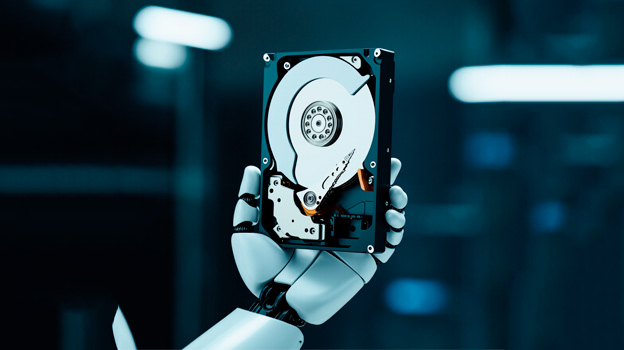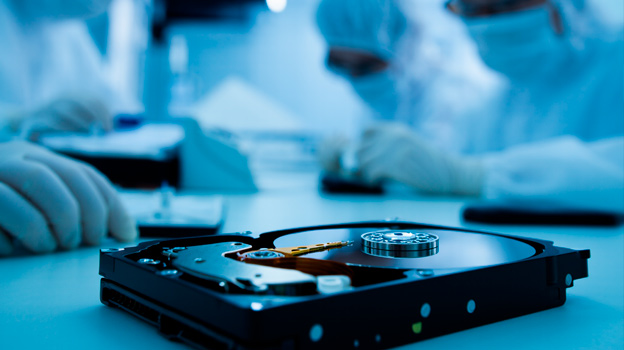
Whether we like it or not, AI is here. Even if we are not fond of it, we will eventually have to learn to live with it as part of our lives. While many professionals are concerned about AI, the main question we should ask is
“Will AI take over the industry I work in, and will I lose my job because of it?”
Before we try to answer that question, let’s first look at what AI is and its current purpose in the tech industry. AI (Artificial Intelligence) is a field of science involving the creation of machines that can learn, reason, and perform tasks that would ordinarily require human intelligence. AI systems rely on data, algorithms, and computational power to simulate human intelligence.
Human Factor
Using that as our foundation, this is what I predict will happen. AI will never fully replace the human factor. Instead, it will become an assistant used during the performance of complex data recovery processes and cases.
Data recovery requires hands-on work, which amounts to about 80 percent of the actual data recovery. That is because you still need an engineer to open or close, disassemble, assemble, repair, or replace damaged components.

AI technologies, and machine learning algorithms, in particular, have become pivotal in the automation of complex recovery processes. That is because these algorithms have the ability to swiftly sift through petabytes of data, identifying lost or corrupted files…and they do it with amazing accuracy. This type of automation goes far beyond just speed, which enhances the precision of the recovery effort.
In other words, when engineers used to have to invest a lot of time during complex recovery situations, often having to write new software and create algorithms to focus on severe corruption or fragmentation, AI completes this task almost immediately. That is opposed to an engineer requiring days or weeks to get the same result.
AI Integration
Integrating AI so that it works in complex situations is another major hurdle, however, it is really just one major investment that should return long-term benefits. Having access to such powerful technology in the data recovery industry only makes sense if you plan to stay current and competitive.
Sure, AI seems like a threat to many, but using it as a powerful tool instead of fearing that it can replace humans, is where the true strength of the technology exists. As it may be a convenience for some industries, there are others like the arts and entertainment field, where AI is taking over. This shift has put many artists and freelancers out of business. That is AI used in these instances produces incredible results at a fraction of the cost of a human doing the work.
This is the point where I think physical will once again start to be favoured over digital.
Think about that for a moment. Is there something that you do that is a repetitive task that you find boring that could be automated to be done better? There probably are a few examples where you won’t be needed to perform those tasks as AI will do them with precision that you could never achieve. If those tasks are what you have built a career around, do you think AI could replace at least part of your job?
Automation
This is why it is so important to have elements of your daily tasks that would be impossible to automate simply because they require that piece of human intelligence.
AI is here now, and it won’t be going away anytime soon. But we must also recognize that AI is just in the early stages of development. It is difficult to predict how far it will advance and what impact it will have in the near future. But, as I said earlier, we still have to learn to live with it and somehow try to work with it.
When we do that, we make the best of a situation that some view as a form of technology invasion. I know that sounds harsh, but that is a simple way to sum up the feelings of those who see AI as a threat. If you look at it as a partner, a co-worker, or a tool to assist you on the job, you may find it easier to get along with the change.
